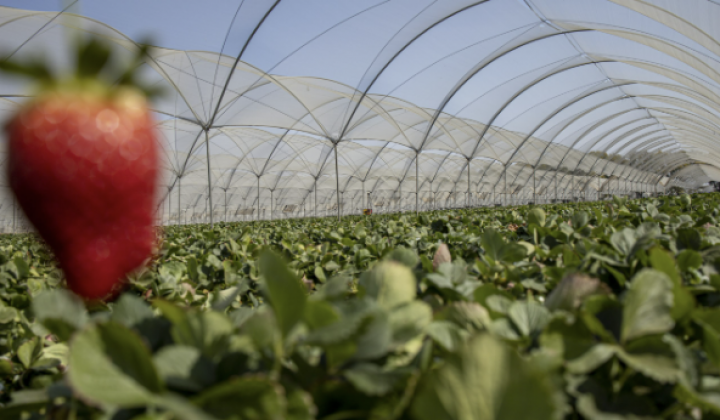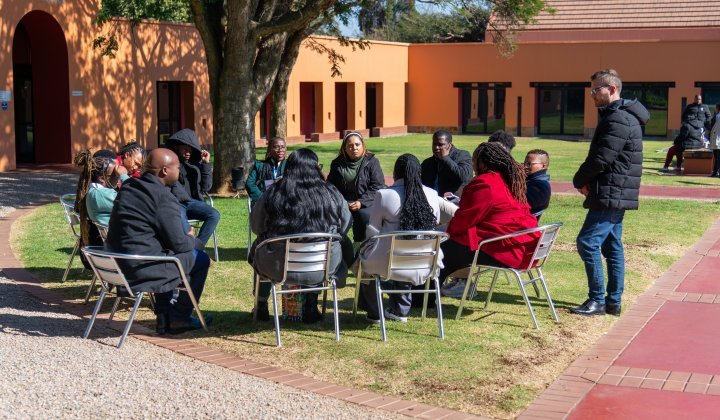With greater environmental and social awareness, consumers are increasingly scrutinising the actions of retailers. The retailers’ role as the fulcrum between consumers and industry, however, gives retailers the power to drive change and, in the process, to meet consumer demands.
For consumer-focused businesses looking for a successful case study to follow, the South African Sustainable Seafood Initiative (SASSI) developed by the World Wide Fund for Nature (WWF) is a useful model. Launched in 2004, the concept was simple: educate consumers and give them the knowledge and tools to put pressure on retailers to change their practices. As a result of empowering consumers, the demand for sustainable seafood increased, thereby compelling retailers to contact the WWF to find out more about SASSI and seek advice on how they could change their procurement strategies to meet customer demands.
The WWF-SASSI initiative ultimately led to a broader understanding on the part of South African grocery retailers of their role in ensuring more sustainable supply chains, and not only in seafood. Through changing procurement models, retailers learnt that they have the power to change industry practices, which will ultimately ensure the robustness of any business operating in a world where social and environmental sustainability matter.
Partnerships need to be forged across sectors and supply chains...
Sixteen years on and the WWF-SASSI initiative provides five valuable lessons for businesses:
1. Long-term commitment
Change takes time. In WWF-SASSI’s case, building momentum to get consumers to start demanding change took years of commitment. Encouraging retail participation and getting industry on board will take many more years. The reality is that achieving transformation in a complex system requires the amalgamation of many small action steps. Through perseverance, WWF-SASSI now has all the major grocery retailers on board, two seafood suppliers (I&J and Breco Seafoods), two seafood restaurant chains (Ocean Basket and John Dory’s) and the Sun International hotel group.
...retailers learnt that they have the power to change industry practice...
2. Keep it simple
The WWF-SASSI platform was simple. It allowed consumers to search for a particular marine species to see if it had been sustainably fished. Consumers could then make a quick decision using a three-colour system: eat green, think about orange, and avoid red. Although WWF-SASSI’s model is based on credible scientific data, they did not bombard people with complex jargon or science.
3. Sell the value proposition to the right people
WWF-SASSI required their retailers to respond to consumer demands and, in turn, to put pressure on the fishing industry to adapt its model. This meant WWF-SASSI had to offer a value proposition which made business sense. Fortunately, as consumer demand changed, it created a business case for sustainable procurement. This message was then taken to top management, ensuring that the importance of sustainability was passed top-down throughout the large retail chains.
4. Provide a plan while working within individual structures
A one-size-fits-all model was not going to work. Since each retailer had a unique business model, WWF-SASSI structured an approach for each retailer that worked within their existing systems or offered minimal disruptive changes. WWF-SASSI then took this one step further by supporting the idea with tangible action. Dedicated WWF-SASSI experts were appointed to work with retailers to help them analyse supply chains and adapt buying strategies, providing real solutions and pathways.
5. Have teeth
The WWF put accountability mechanisms into place. These included formal contracts with retailers agreeing to meet buying targets, combined with the threat of reputational risk if they did not comply. This way, WWF-SASSI was able to gently ensure that retailers honoured commitments and remained transparent in their reporting.
Retail sector successfully driving change
The impact the retail sector can have in driving industry change is evident in WWF-SASSI’s success with one of South Africa’s favourite fish, kingklip. For years, kingklip (those fished by longline) was categorised as orange due to the impact fishing practices were having on the surrounding wildlife. To honour their commitment to protect orange and red-listed species, and to work to support fisheries' improvement projects, many retailers did not readily procure kingklip. This encouraged simple changes to fishing practices, which saw surrounding wildlife protected, and now kingklip from the demersal longline fishery is green-listed.
During this pandemic, retailers’ commitment not to buy red-listed marine species has further highlighted the impact WWF-SASSI has had. China’s ban on imports saw a drop in demand for the highly vulnerable West Coast Rock Lobster. Usually a very lucrative catch for fishermen, South African retailers have refused to purchase the product due to their commitment to the SASSI programme. Although the decision puts a strain on the fishing community, what it has done is force the protection of a critically endangered species, and hopefully a change in industry practices.
Headwinds of progress
Despite these wins, the WWF-SASSI-retail/supplier partnerships have faced many headwinds, but overcoming these considerations has highlighted four critical components:
1. Relationships
Partnerships need to be forged across sectors and supply chains, both at a personal and organisational level. This requires those driving change to show empathy for the needs of the people operating ‘on the water’ while collaborating at a level that facilitates a willingness to change. There also needs to be ongoing skills and knowledge transfer to allow new ideas and practices to filter through the supply chain.
2. Centralised vs decentralised models
South Africa’s retailers typically operate under centralised or decentralised business models. Centralised models see head office dictating buying practices across the chain. A decentralised, or franchise model, however, poses a greater challenge when it comes to compliance, as the buying decisions often fall on the store owner. This means a lot more work must be done by these retail chains to impart the importance of the sustainability message to their members.
Clear communication and transparency of labelling are key...
3. Communication
Clear communication and transparency of labelling are key for retailers to keep their customers informed. In an industry as complex and global as the fishing industry, traceability, and identification of species, as well as fishing practices, compound the challenge for retailers to accurately inform customers of what they are buying.
4. Uncontrolled markets
WWF-SASSI and retailers cannot control everything that happens in the system, such as the export of highly sought-after yet endangered products, or the import of untraceable seafood. As such, an initiative such as WWF-SASSI had to recognise that it can only work where it has influence.
Systemic change
Achieving systemic change within one of the world’s most complex industries was never going to be easy. However, South African retailers decided to start driving change. This approach was driven, in part, by clear consumer preferences and the growing demand for sustainability in business practices. And, as a result of the success in changing their seafood buying methods, many retailers are now broadening their procurement approach to other products that have significant social and environmental impacts, such as palm oil, cacao, sugar and cotton. Retailers are not only changing how they buy but are also now looking to tackle issues of waste and packaging, making holistic changes to the end product.
The WWF-SASSI initiative demonstrates that driving sustainable practices is not about cracking the whip, but rather about forging relationships, nurturing the process, and showing people how things can be changed for the better.
Dr. Jill Bogie holds a PhD in Business Management, and her areas of interest are strategy, strategic foresight and sustainability. She teaches systems thinking and complexity on the GIBS MBA programme, and business futures on the MPhil Corporate Strategy programme. Jill applies 40 years of business experience to focus on building sustainability into core business strategies to address the complex global challenges of the 21st century.
Dr. Theresa Onaji-Benson is the manager of the Centre for African Management and Markets, and the Faculty Lead for the Executive Doctorate in Business Administration at GIBS. Her research interests are on the influence of non-market strategies on business in Africa, with a firm level of analysis and focus on ethics, partnerships and how firms and MNEs adapt to and sustainably influence their business environment.
Pavs Pillay holds an MSc degree in Marine Biology from the University of Cape Town and has been working in the marine science, marine science education, training and communication sector for several years. She joined WWF-SA in 2015 as the Southern African Sustainable Seafood Initiative (SASSI) manager working on how to use behavioural science and effective communication to shift consumer choices of seafood and help transform the seafood market in South Africa.




